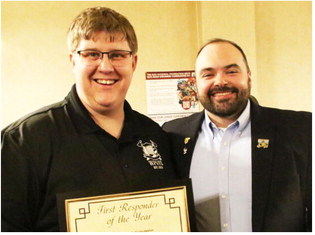FROM THE EXTENSION DESK
Can you safely feed forages and grains damaged by the weather? What are the considerations you need to keep in mind? Is it safe to feed sprouted grains? How do you make these decisions?
On Tuesday, Nov. 19, at 10 a.m. at the Roosevelt County Complex, 307 Broadway in Culbertson. MSU Extension agent Jerey Chilson will be presenting on considerations and dangers involved with weather damaged feeds.
The conditions this year have resulted in forages that were baled wet and were rain damaged. Will this present a problem come this winter? The short answer is it depends.
Conditions this year can contribute to changes in nutrient content, mold and fungal growth that could cause problems in livestock. Cool and wet weather have also resulted in delayed harvest and lower quality grains. These unharvested grains, sprouted grains and other lower quality grains have their own considerations when feeding.
Overfeeding grains can have a detrimental impact on livestock health, while wet grains can be infected with molds and fungi that can affect health, reproduction and growth. Understanding these problems and risk mitigation may have a large impact on a producer’s bottom line, livestock health and productivity.
Everyone is encouraged to attend and no RSVP is necessary. For more information, contact Jerey Chilson at 787-5312 or via email at jerey. chilson@montana.edu.

